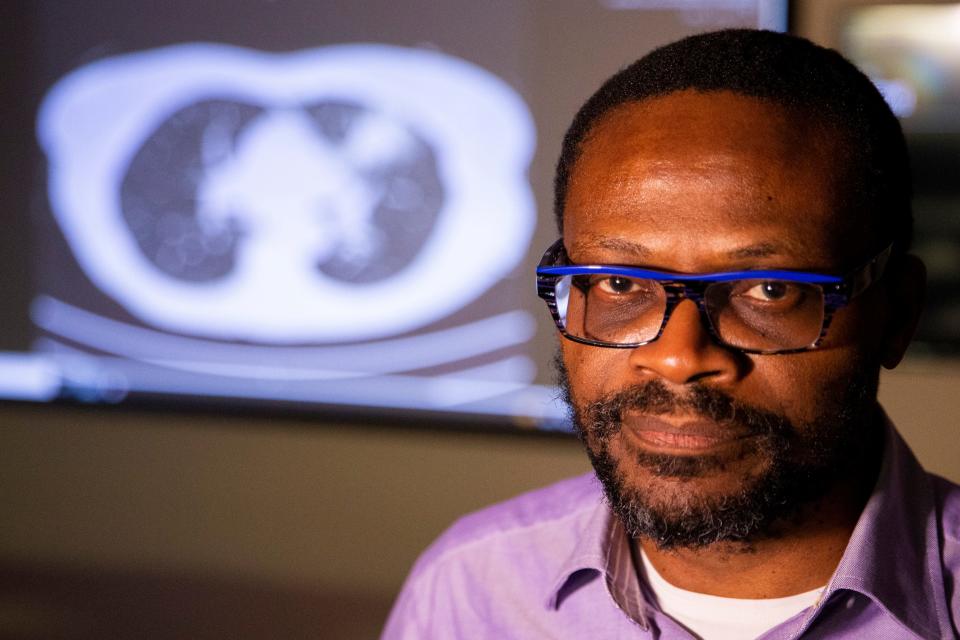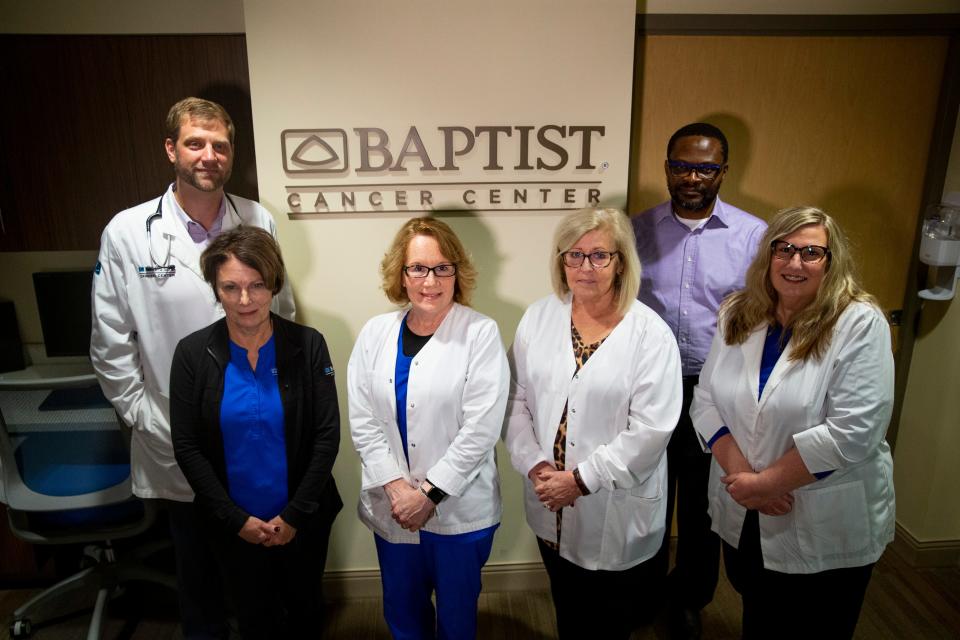The Mid-South is an epicenter for lung cancer. How a Memphis hospital is increasing survivorship
The Mid-South, for multiple reasons, is considered an epicenter for myriad health issues — heart disease, diabetes, stroke, obesity and more.
It's also considered the epicenter for lung cancer, and as with all chronic health conditions concentrated in the Mid-South area. A lack of preventative screening is a leading factor in the higher-than-average rates of disease in the area.
But new research initiatives out of Baptist Memorial Health Care may position the Mid-South as the epicenter for advancing the survival rate of lung cancer.
Recently, the American Cancer Society changed screening guidelines to align with recommendations from the U.S. Preventative Services Task Force. It's now recommended that even those who have quit smoking for 15 years or longer be screened, especially if that person smoked a pack a day or more for 20 years or longer.
Prior conventional wisdom, according to experts, was flawed. It was thought the longer a person had been a non-smoker, the lower their chances for developing lung cancer were. This false sense of security is believed to have led to especially low rates of screenings across the U.S. and a higher rate of Stage 4 diagnosis compared to other cancers regularly screened for.

But on the lung cancer screening front, research findings out of Baptist's "Mid-South Miracle" — an initiative started in 2021 to curb fatal outcomes among lung cancer patients by 25% — have attracted attention from some of the U.S.'s top medical institutions.
"The story is increasingly one of survivorship. We are well on our way to converting types of cancer that were once considered terminal, to curable," said Dr. Raymond Osarogiagbon, the chief scientist and director of the multidisciplinary thoracic oncology program at Baptist Cancer Center.
The story Osarogiagbon refers to is one of burgeoning artificial intelligence programs that will capture more information from more types of scans, and then flag that information for patients. Key to the story of earlier diagnoses is the detection of "incidental lung nodules."
The term refers to nodules found in the lungs by chance, usually through a CT scan ordered by a doctor for another reason besides cancer screenings.
Osarogiagbon's team has spearheaded a program that automatically captures information about possible growth in the lungs from CT scans. That information can then be shared with a team of navigators, who can then in turn direct a person to evidence-based care options.
In the near future, this program will serve as a basis for artificial intelligence that can expedite the process of triaging information that points to a potential problem in the lungs.
This research has been published in several prominent medical journals including the Journal of the American Medical Association and Journal of Clinical Oncology, and it shows a drastic difference in early diagnoses between patients who participated in a clinical trial and those that did not.
Healthcare news: 30 years post-transplant, this Tipton County man considers his life an 'ongoing miracle'
It's all about getting a diagnoses earlier, thereby increasing a patient's survival rate.
“It’s only one in 10 (diagnosed patients) that still has cancer in stages one or two. With our approach, we know that we are flipping that from 10% to 50%. If that happens, across the globe, that’s going to be a huge army of lung cancer survivors," Osarogiagbon said.

As a result of the research spearheaded by Osarogiagbon, there's now an emerging partnership between top medical institutions and Baptist, like Harvard University's teaching hospital, Massachusetts General Hospital, and the Massachusetts Institute of Technology.
Partnering with pharmaceutical companies as more research comes out of national and international clinical trials, is also on the table, Osarogiagbon.
“It’s been gratifying that the work we’ve done," Osarogiagbon said. "We’re very proud that in the Mid-South, we're leading this work. The light is shining very, very brightly."
Micaela Watts is a reporter for The Commercial Appeal covering issues tied to hospitals, healthcare, and resource access. She can be reached at micaela.watts@commercialappeal.com.
This article originally appeared on Memphis Commercial Appeal: How Baptist Memorial Health Care could up lung cancer survival rates

